The core challenge: wealth, paradox, and development
A consistent theme from the African perspective is the need to address the fundamental paradox of forestry in Africa.
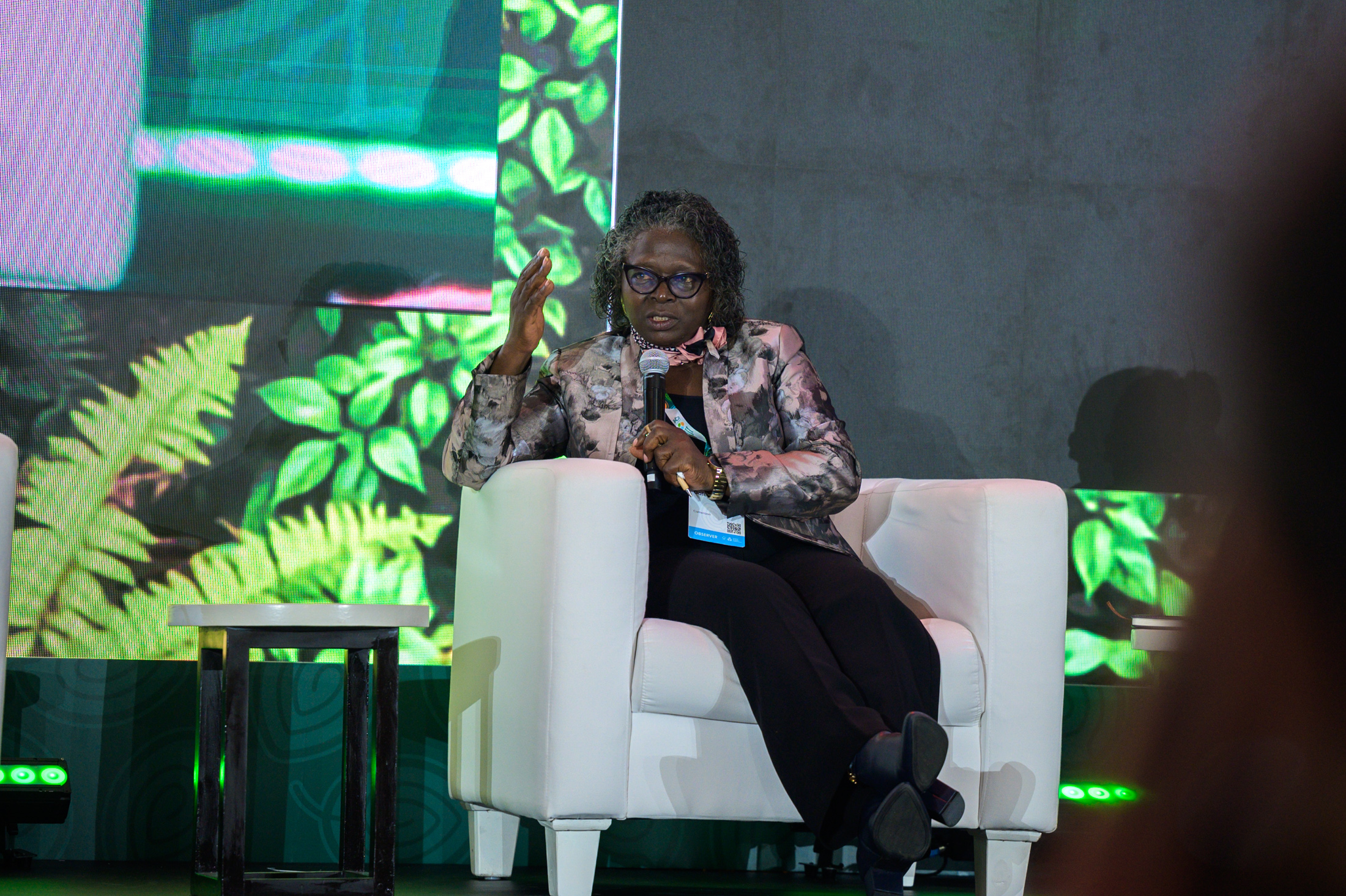 Mrs. Prudence Galega, Africa Advisory Committee Member, highlighted the historical presence and progress of FSC in Africa but stressed the difficult context:
Mrs. Prudence Galega, Africa Advisory Committee Member, highlighted the historical presence and progress of FSC in Africa but stressed the difficult context:
"Africa holds approximately 20% of the world's forests, yet it struggles to translate these vital resources into improved livelihoods and robust economic growth for its people. This paradox, coupled with increasing and competing demands, has led to an accelerating loss of biodiversity and forest ecosystems." She concluded that FSC's global alignment on sustainability is critical, especially since The Convention on Biological Diversity (CBD) recognizes certification as a key tool for promoting sustainability in economies.
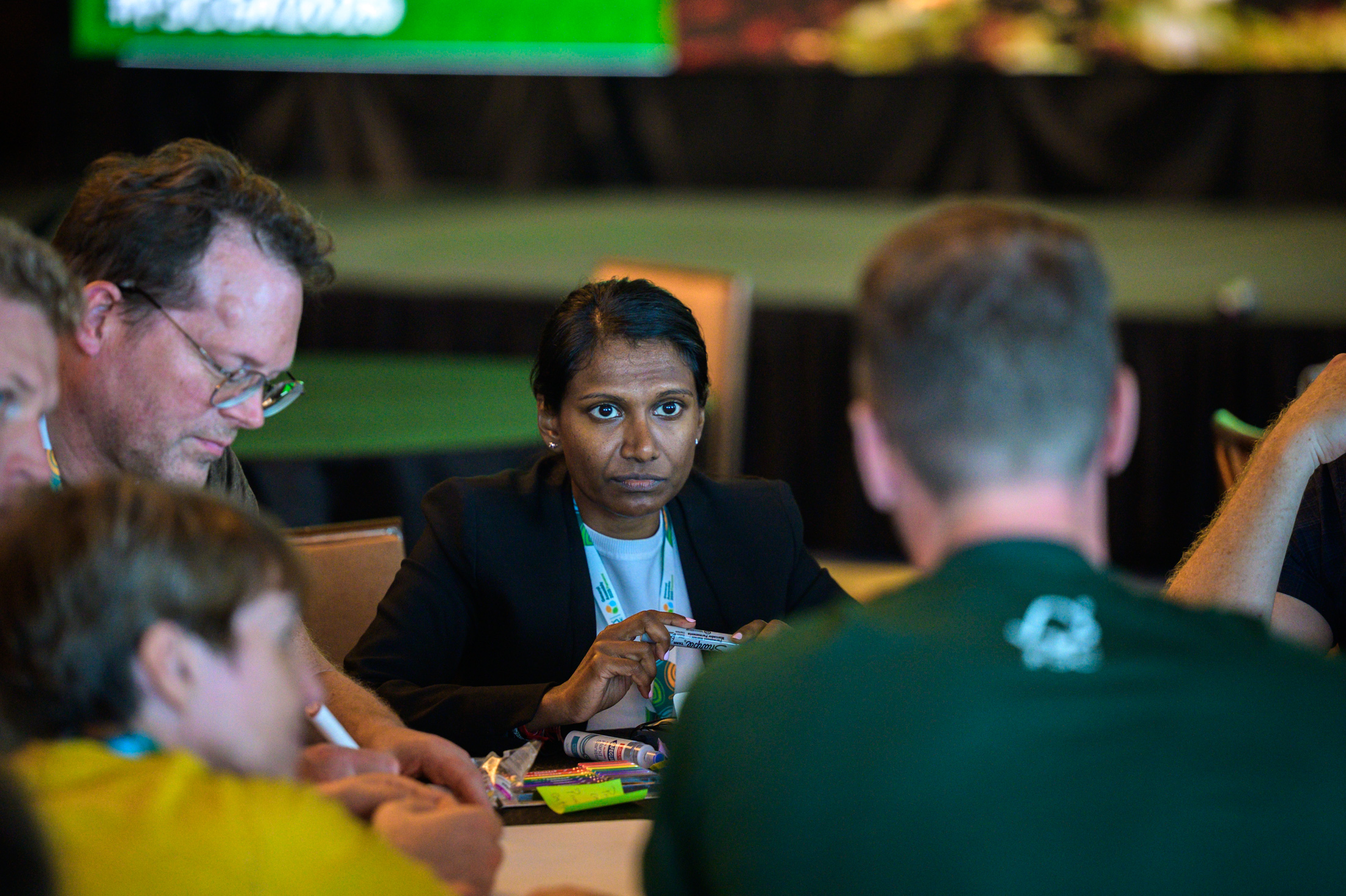 Manushka Moodley, a Certificate Holder and Member, celebrated the vibrant discussions across chambers and issues:
Manushka Moodley, a Certificate Holder and Member, celebrated the vibrant discussions across chambers and issues:
"It’s been an amazing experience engaging with members from every corner of the world... Motions spanning restoration to remedy, and tropical timber markets to traceability, had us all debating... While we may not always agree as members, that diversity of thought remains one of FSC’s greatest strengths." She highlighted the challenging work ahead on the revision of the FSC Forest Management Principles and Criteria and the Chain of Custody Standard, stressing the need to ensure "that the realities and perspectives from Africa are meaningfully included."
Governance, inclusivity, and the power of the minority
Several voices expressed deep concern over FSC's governance structure, arguing that it risks silencing the regions most affected by ecological and social crises.
Vincent Istace, Sustainability Head at Olam Agri, articulated a mix of admiration and frustration:
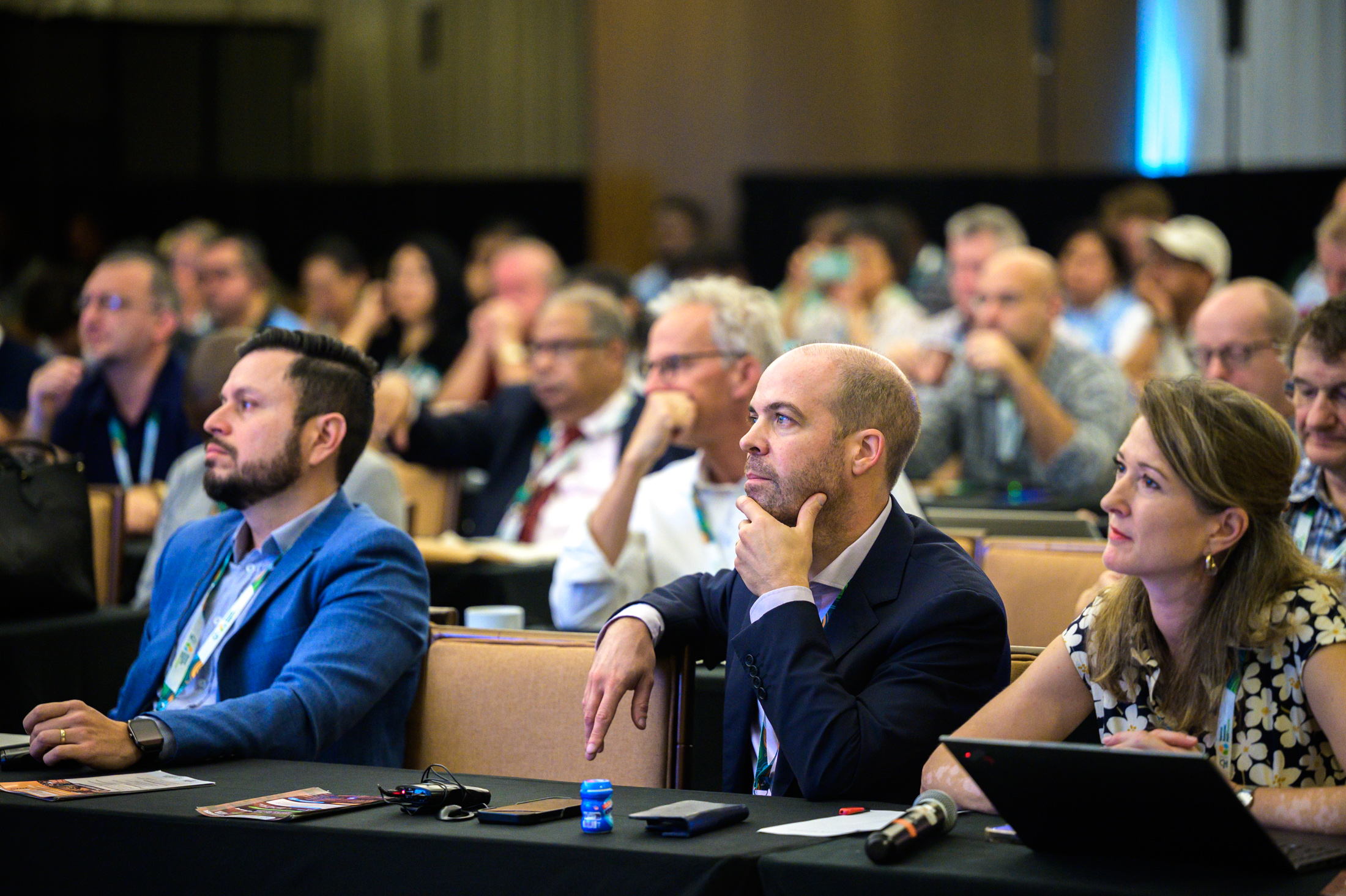 "The FSC was built on a visionary idea: a balance between environmental, social, and economic interests. In theory, three chambers ensure fairness and inclusivity. In practice, they have become silos." He critically pointed out the effects of proportional voting: "The Congo Basin, for example—with 7 million hectares certified out of 160 million worldwide—represents a fraction of the votes, even though it carries an outsized share of the world’s ecological and social stakes. When discussions become arithmetic, ecosystems turn invisible." Istace called for a governance model that encourages collaboration over chamber-based isolation, urging FSC to become an effective agent of change by listening to at-risk voices.
"The FSC was built on a visionary idea: a balance between environmental, social, and economic interests. In theory, three chambers ensure fairness and inclusivity. In practice, they have become silos." He critically pointed out the effects of proportional voting: "The Congo Basin, for example—with 7 million hectares certified out of 160 million worldwide—represents a fraction of the votes, even though it carries an outsized share of the world’s ecological and social stakes. When discussions become arithmetic, ecosystems turn invisible." Istace called for a governance model that encourages collaboration over chamber-based isolation, urging FSC to become an effective agent of change by listening to at-risk voices.
Babatunde Olarewaju echoed the need for genuine cross-chamber dialogue, labeling his first GA a "Sweet Bitter Experience":
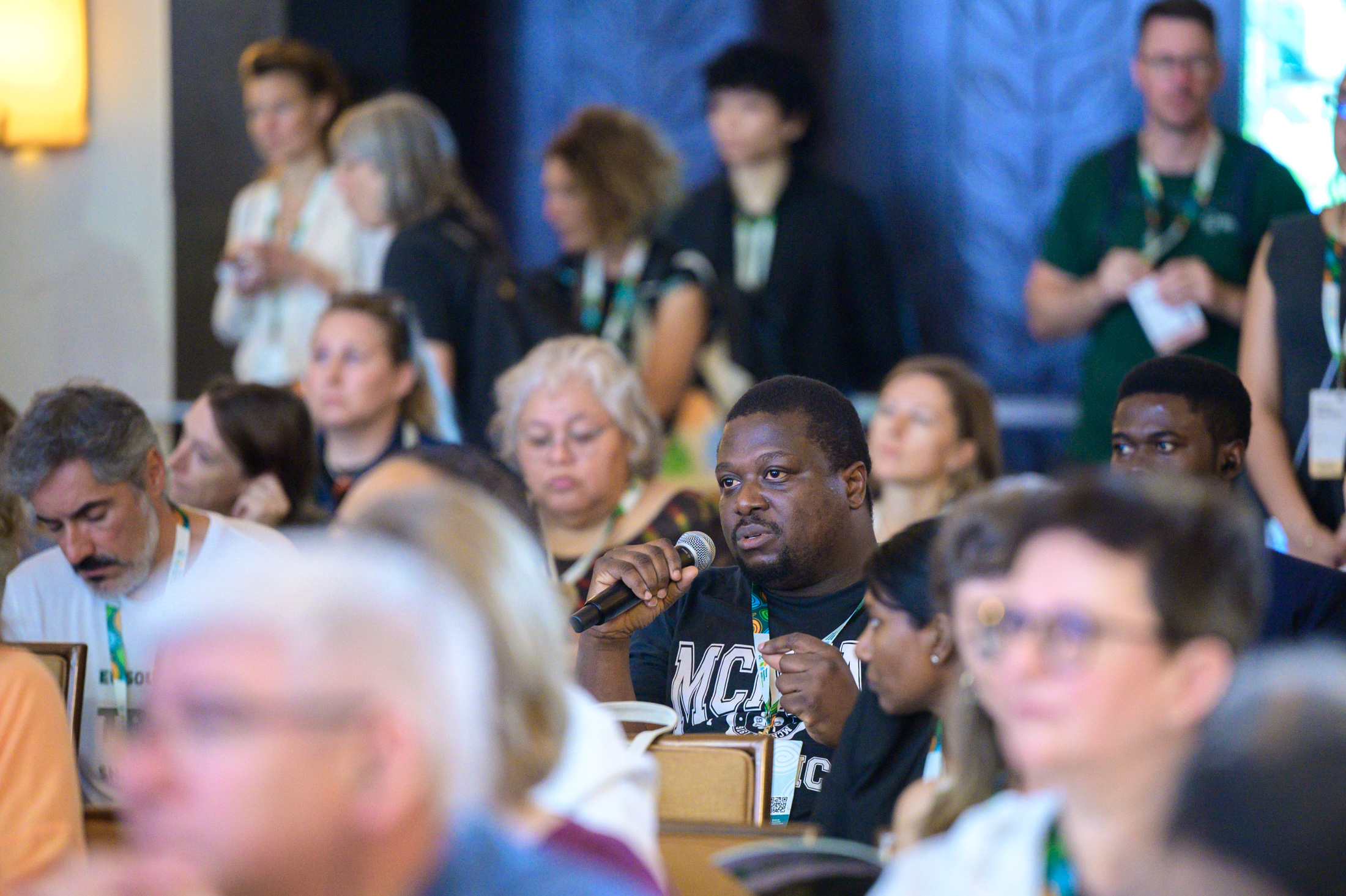
He lamented the "aggressive and visible campaign against Motion 28" by certain members, which shut down meaningful discussion, and pointed out the easy rejection of other important motions (such as 1, 14, 17, 20, and 25). Olarewaju called for members to find a balance to improve motion content rather than "rejecting good intentions on the basis of easily fixable technicalities." He also strongly criticized the process that initially removed Motion 5, calling for the Board to be "fully accountable" for upholding the truth and the integrity of the procedures.
Harrison Nnoko, CEO of AJESH (Cameroon Civil Society Organization), participated in the Environmental Chamber to contribute to strengthening the certification system. AJESH's perspective is that the FSC must have a "tangible impact on communities and governments" and achieve national recognition. He called for a shift in accountability:
"Communities must contribute to data collection and independent monitoring of forest concessions... This will make it possible to measure the ecosystem services owed to communities in order to strengthen agroforestry and restore degraded ecosystems."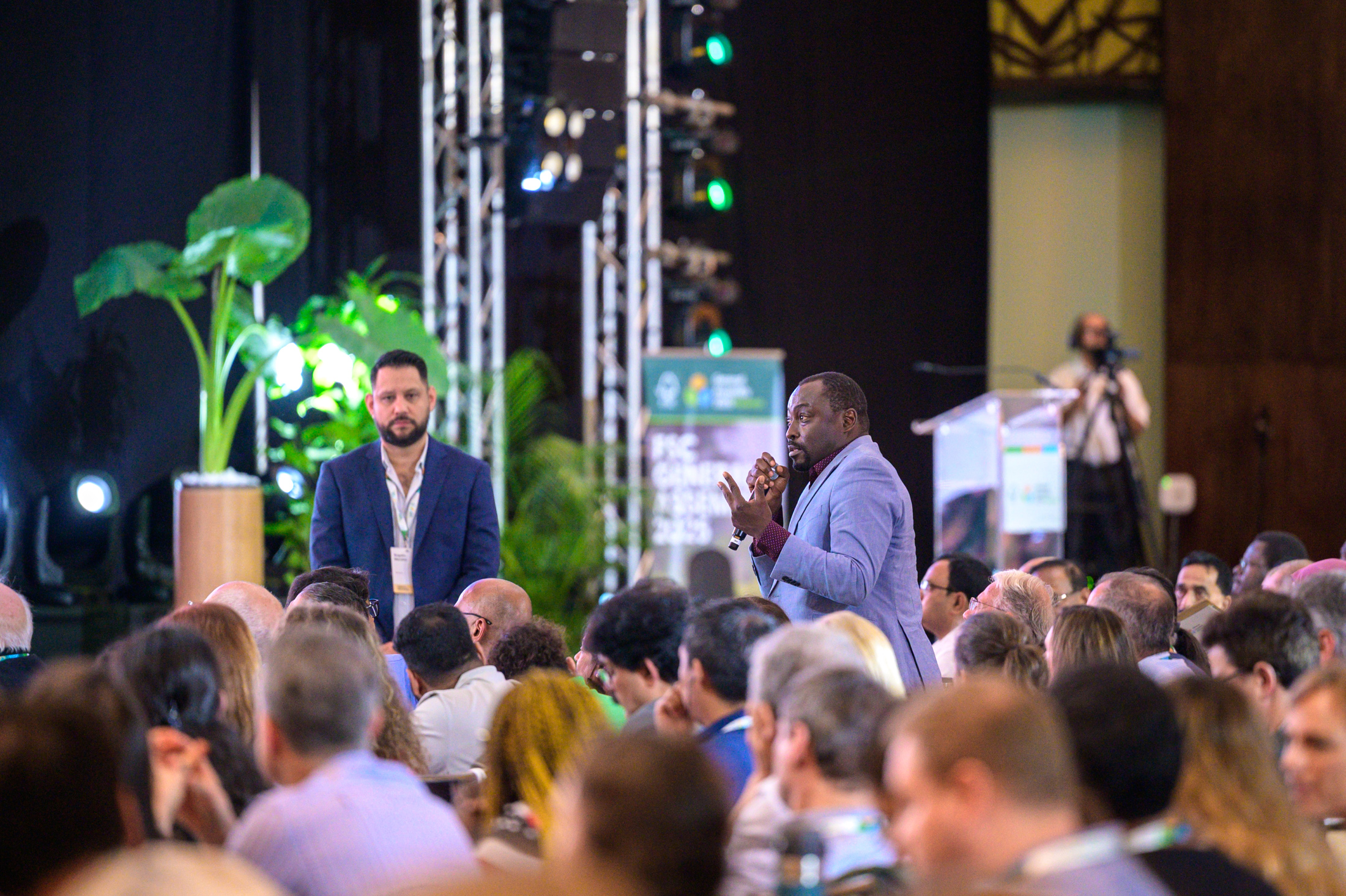
The indigenous and health imperatives
The delegation also delivered a clear message on two non-negotiable concepts: the inclusion of Indigenous Peoples and the critical link between forests and public health.
Hindou Oumarou Ibrahim, Chair of the FSC Indigenous Foundation, made a direct plea for inclusion:
"My people are cattle herders. We are nomadic pastoralists. We understand each season, each species of these forests. We know exactly how we can maintain the balance... I want to see more FSC opening the doors pulling the chairs to include Indigenous Peoples in the decision making table."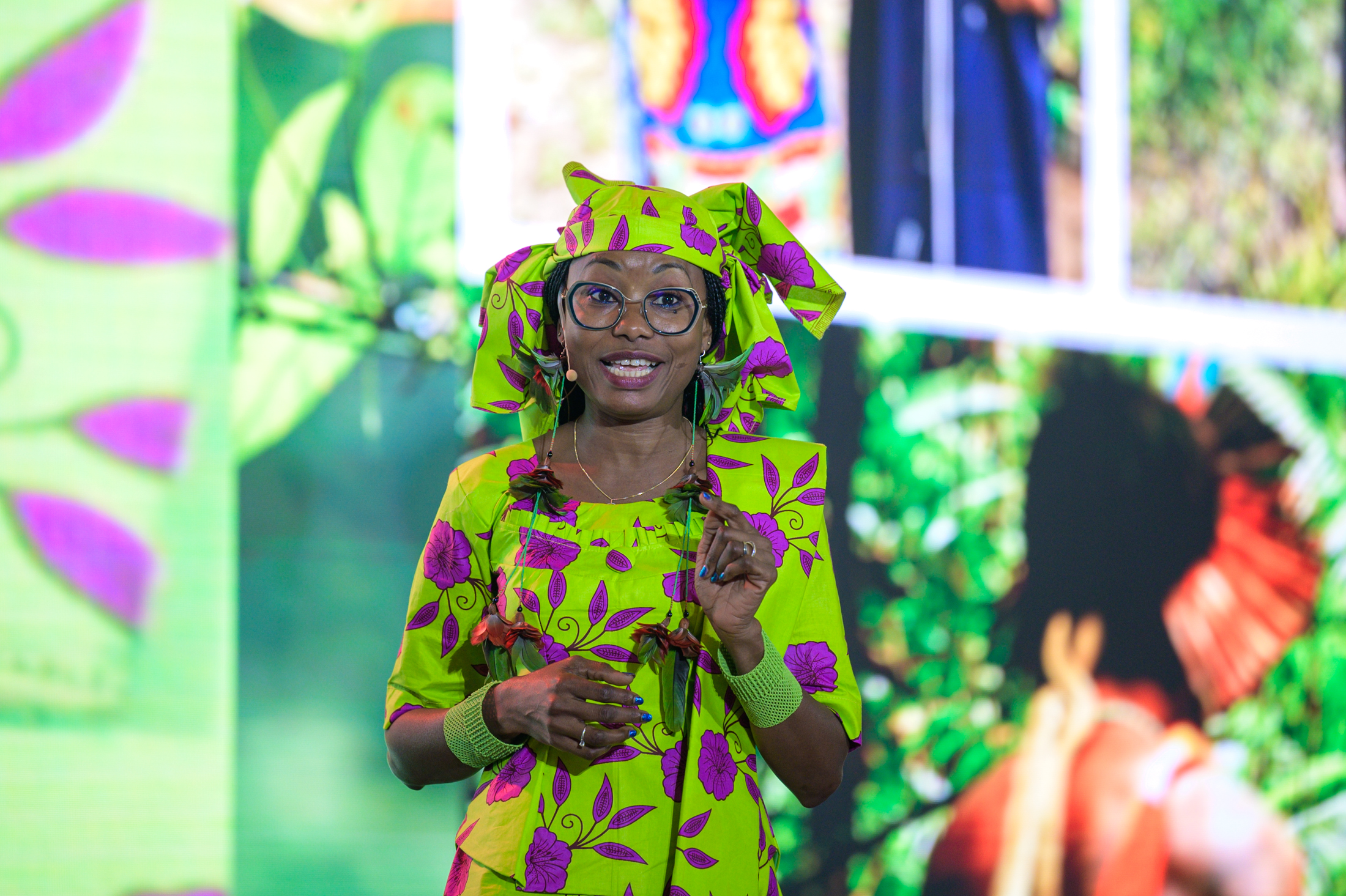
This sentiment was reinforced by Adam Mwarabu, Social Chamber Member and Pastoralist, who noted the encouraging number of African delegates:
"Now we have several Indigenous Peoples, and we want to channel investments to indigenous knowledge, how indigenous people are taking care of the forest. This stewardship has been part of our lives and we want to support African forest stewardship work and see forest protected for all forever."
Salomon Compaore, MD, MPH, Global Health Specialist, passionately argued for centering human health in the forestry narrative:
"Forests are far more than just collections of trees; they are essential pillars supporting human health and well-being." He highlighted that a vast number of medicines, from aspirin to the cancer-fighting drug vincristine, are derived from forest plants, making forest destruction a potential "loss of future cures." Compaore urged FSC to champion the "One Health" approach in its strategy, ensuring that all stakeholders recognize forest health as a non-negotiable prerequisite for human health.
In summary, the African delegation acknowledged the valuable platform of the General Assembly but issued a clear mandate: the FSC must urgently address its governance structure to empower minority voices, fully integrate Indigenous knowledge, and connect its mission directly to the public health and economic development of the continent.
